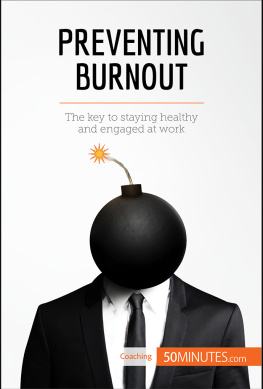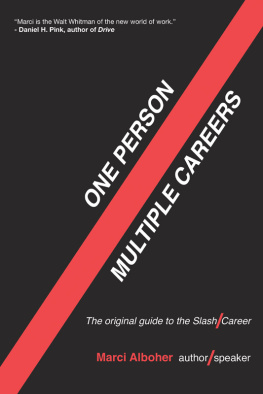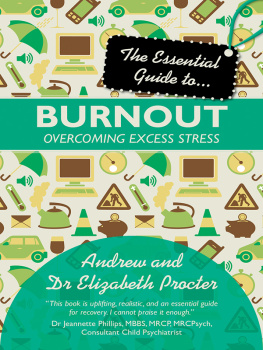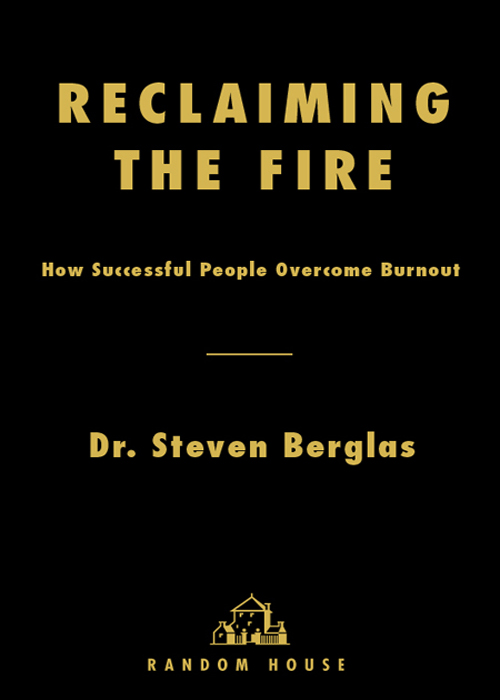Steven Berglas - Reclaiming the Fire: How Successful People Overcome Burnout
Here you can read online Steven Berglas - Reclaiming the Fire: How Successful People Overcome Burnout full text of the book (entire story) in english for free. Download pdf and epub, get meaning, cover and reviews about this ebook. year: 2001, publisher: Random House, genre: Detective and thriller. Description of the work, (preface) as well as reviews are available. Best literature library LitArk.com created for fans of good reading and offers a wide selection of genres:
Romance novel
Science fiction
Adventure
Detective
Science
History
Home and family
Prose
Art
Politics
Computer
Non-fiction
Religion
Business
Children
Humor
Choose a favorite category and find really read worthwhile books. Enjoy immersion in the world of imagination, feel the emotions of the characters or learn something new for yourself, make an fascinating discovery.

- Book:Reclaiming the Fire: How Successful People Overcome Burnout
- Author:
- Publisher:Random House
- Genre:
- Year:2001
- Rating:5 / 5
- Favourites:Add to favourites
- Your mark:
Reclaiming the Fire: How Successful People Overcome Burnout: summary, description and annotation
We offer to read an annotation, description, summary or preface (depends on what the author of the book "Reclaiming the Fire: How Successful People Overcome Burnout" wrote himself). If you haven't found the necessary information about the book — write in the comments, we will try to find it.
In Reclaiming the Fire, Dr. Steven Berglas analyzes the rises and falls of corporate executives, middle managers, lawyers, entrepreneurs, and others as they struggle to handle the trappings of successful careers. How does one deal with encore anxiety, the monotony of having to use talents that are no longer psychologically rewarding? Why is it that our national obsession with wealth traps people in careers that often lead them to wonder, Is that all there is? And why do highly successful people often set themselves up for disastrous falls?
Dr. Berglas answers all these questions and many more in this groundbreaking book by discussing real people whose careers have left them feeling pressured, burdened, and jaded.
In his most progressive and striking contribution to the literature on career success, Dr. Berglas debunks the persistent myth that women suffer more stress and burnout than men. He disproves the common claim that women involved both in careers and in family life suffer from trying to have it all, and he demonstrates how the drive to form close interpersonal ties a drive that is intrinsic to women can actually prevent both men and women from experiencing burnout. In a related analysis of the mentoring process, Dr. Berglas shows why it is more important for careerists to build legacies for future generations (a process he terms generativity) than to become obsessed with their own personal success. He proves that the process not only benefits the student but provides the mentor with psychological satisfaction and even improved physical health.
Reclaiming the Fire uses the working world not the psychiatric couch as a venue for understanding the psychological and emotional burdens of success. It is the first comprehensive account of how to balance self-esteem and ambition while maintaining challenge and stimulation throughout your career.
Reclaiming the Fire provides insight into:
*Why baby boomers are currently suffering an epidemic of career dissatisfaction
*Why women are uniquely suited to cope with the pressures that cause men to suffer burnout, and what men can learn from them
*How to escape golden handcuffs: the workaholic devotion to a job that is no longer emotionally satisfying
*How to cope with anger that threatens to sabotage your career
*How all professionals can identify the passions that will allow them to sustain and enjoy success throughout their lives
From the Hardcover edition.
Steven Berglas: author's other books
Who wrote Reclaiming the Fire: How Successful People Overcome Burnout? Find out the surname, the name of the author of the book and a list of all author's works by series.











 RANDOM HOUSE / NEW YORK
RANDOM HOUSE / NEW YORK